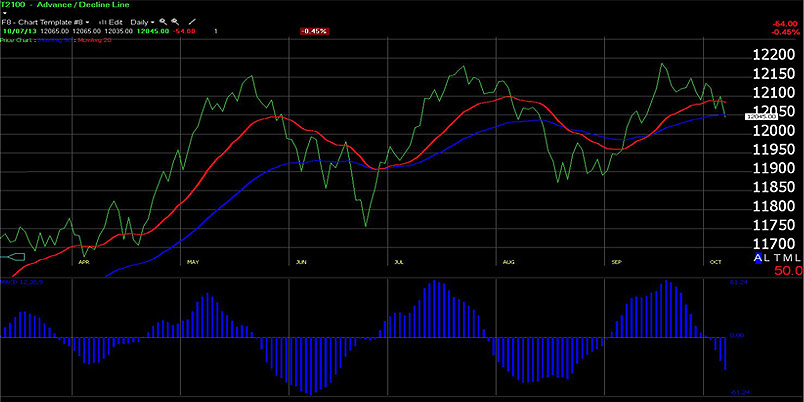You might think following Angela Merkel’s electoral success last month all was stable in Euroland; unfortunately, nothing could be further from the truth. I have it from reliable sources that Euros continue to flood out of Europe, so much so that Mario Draghi, the president of the European Central Bank, stated publically immediately after the German Elections that “unlimited” amounts of “money” will be available to support the Euro.
However, more worryingly, the specter of being “Cyprused” continues to haunt Euro citizens. Every month the “bail-in” model, placed into law during the Irish presidency, becomes the option of choice to save troubled banks. This phenomenon is not being widely reported yet its use is utterly destroying the faith ordinary Europeans have in their banks. General banking liquidity levels have become so low in England that the policy has now seeped into the sterling area. As reported by The Telegraph last week:
“Bail-in of Sterling Banking System Officially Begins As UK’s Co-Operative Bank to Bail-in £1.5bn With 100% Losses!”
“In the wake of the Cyprus Popular Bank’s depositor bail-in, we alerted Telegraph readers on April 2nd to the fact that bail-ins were coming to the US and UK, as The Fed and BOE had quietly created a resolution authority for unlimited bail-ins for TBTF banks.
Less than 3 months later, the bail-in of the western banking system has officially begun, as the UK’s Co-Operative Bank is seeking a £1.5bn bail-in recapitalization with junior bond holders and investors (including pension funds) facing a complete-100% wipe-out on £370m of permanent interest bearing shares (PIBS) issued by the Co-op.
Co-operative Bank faces nationalization if junior bondholders reject ‘haircut”.
Co-operative Bank’s rescue recapitalization needs the support of £1.05bn – or around 80pc – of the holders of £1.3bn of its junior debt or the lender could end up being nationalized.
Evan Sutherland, the chief executive of the Co-operative Group, called the rescue plan “good news for The Cooperative Group, The Cooperative Bank, its customers and our members.”
He said it meant both investors and the group would make “a joint contribution” to the bank’s recapitalization, without any help from taxpayers.
However, a group of pensioners and other retail investors in the Cooperative Bank are facing massive losses under the rescue.
Astonishingly, the banksters are taking the theft to an extreme not even seen in the Cyprus bail-in: 100% losses!:
Holders of £370m of permanent interest bearing shares (PIBS) issued by the Co-op and Britannia Building Society before its takeover are expected to have their coupons cancelled, making them effectively worthless. Roughly 7,000 retail investors will be affected and the bank said that, on average, they held less than £1,000 in these bonds.
As Diesel BOOM let out of the bag a touch early, the Cyprus bail-in was indeed a template, as bond holders will be bought out with devalued or possibly worthless equity shares:
The Co-operative Group will issue a new £500m bond, paying about 6.5pc annually, to buy out the junior creditors. They will also be given equity in the group as the bank prepares to float up to 50pc of its shares on the stock market later this year. It is the first time that bondholders have been asked to take a haircut to keep a British bank afloat.
While some bond holders suffer 100% losses on the PIBS, Co-Operative Bank won’t have to sell any assets to raise capital:
The arrangement will spare the Co-op the pain of having to sell any of its crown jewels, such as the funerals or pharmacy business, to plug the capital hole.
We are not the only ones apparently who can realize that bailing-in a UK bank could have drastic long term consequences on confidence in the banking system:
Andre Spicer, Professor of Organizational Behavior at Cass Business School, said the £1.5bn bail might be a good short term solution to keep the bank afloat, but it could create longer term problems for the bank and the UK finance sector.
“The bail in represents a profound change in the business model of the Co-op bank – from being an institution owned by members, to a bank which has shareholders. This change is likely to clash with the cooperative ethos of the bank and, in the longer term, this might undermine what has made the Co-op attractive to its staff and customers,” he said.
“The bail in also represents a longer term challenge for the UK banking sector.”
Dow Theory Market Weakness:
Market weakness continues with no end in sight.
From a Dow Theory perspective the technical weakness is profound. The Dow Industrials are far weaker than the Transports. It was not until the market open last Thursday that the Trannies rolled over and joined the downtrend. Until then the indices were divergent. Both indices are now in congruence and are quite bearish.
Key technical levels on both the Dow 30 and the Dow 20 are the June lows. If these are significantly breached it will take a great deal of market strength to prevent a short term bear correction turning into a powerful bear trend.
Comparison Chart: Dow Industrials & Dow Transports: Daily
This weakness is confirmed by the Advance/Decline line. There has been one 20/50 DMA cross-over in August and it looks like we are about to get a second. This is not a sign of momentum; on the contrary it is a clear indication of market weakness.
Advance/ Decline Line: Daily
Charts Courtesy of Worden Bros.
© 8th. October 2013 Christopher M. Quigley








